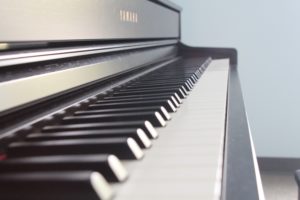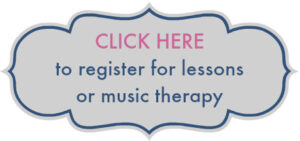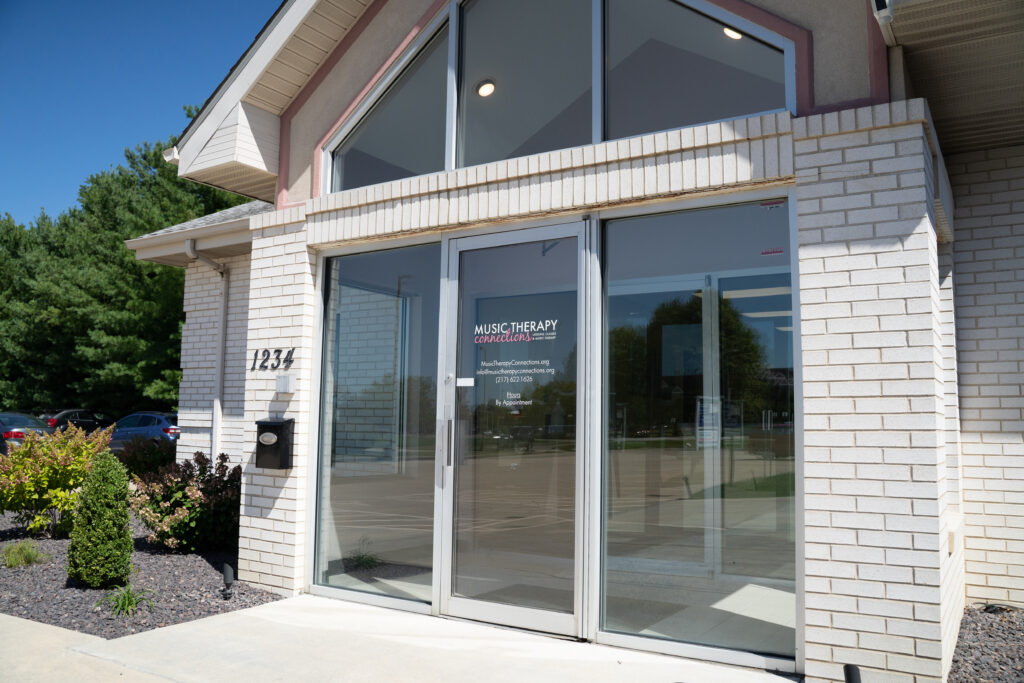Practice Habits: What’s the Point?
With our spring recital right around the corner on May 12th, this is a great time to address practice habits. Are they necessary? What’s the point?
Here are some common dialogues I’ve heard:
- How long does my child really need to practice?
- Does my child need to practice every single day?
- My kids are too busy to practice.
- I’m too busy to sit down with my child.
- I keep forgetting to remind my child to practice.
- My child only has to study for a test the night before, so why can’t he just practice the day before/day of lessons?
{These are my own personal opinions. Every teacher is different and follows a different discipline when it comes to practicing.}
How long does my child really need to practice?
Practice time is determined by the age and skill level of the individual child. We never want to force a child to practice and we want the practice time to be enjoyable.
- For a young child, say 5 years old, a practice session may only last five minutes per day. Pre-primer piano books are child friendly with short exercises. Many books have CDs or digital recordings for home practice, which can be a great motivator if used with each lesson. I also like to encourage free time at the piano, which can include improvising, singing, playing a song by ear, learning a song by ear, and composing.
- The older child might practice for ten to twenty minutes per day as primer and level 1 piano instruction books tend to have longer exercises that require more repetition. This is the age we also see a fair deal of voice, ukulele, and guitar students. For voice, we simply encourage the child to sing! For ukulele and guitar, the instruction books are similar to the piano books in terms of exercise length. I love finding a child’s favorite song to learn during lesson time!
- As a child advances to higher levels and skill sets, practice times will need to be longer. Repetition is the key to learning, in music and in the education setting. Practice times are usually a minimum of 30-minutes per day.
Any assignments that are sent home will already be understood by the child.
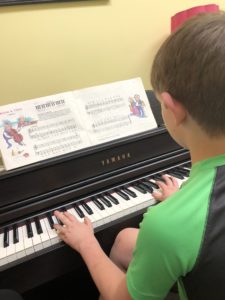
Does my child need to practice every single day?
Yes and no. This is a tricky question. It all depends on the individual. I like to encourage my young students to practice 4-5 times per week. Learning music involves muscle memory. It takes time to coordinate the eyes and hands with what’s on the page. My older, advanced students are encouraged to practice every day.
My kids are too busy to practice.
Is there any point in the day when your child is playing video games on the television, computer, or tablet? Are you constantly trying to get your child away from electronics? Build the practice time into your schedule.
Are you running your child to various activities throughout the week? Pencil in that short amount of time on days when the schedule isn’t as full and keep it scheduled for the same times every week.
I’m too busy to sit down with my child.
Any assignments that are sent home should already be understood by the child. I personally do not send home assignments that might be frustrating. I like to create a slight challenge when applicable but never too far fetched. This is especially true for my more advanced students. I tend to make notes on assignment sheets for single hand practice or specific measures when an exercise or piece is difficult. The last thing I want to do is make practicing a negative experience.
I keep forgetting to remind my child to practice.
I hear ya! I forget things left and right. Thank goodness for calendars, reminder apps, notification sounds, etc…
My child only has to study for a test the night before, so why can’t he just practice the day before/day of lessons?
Learning an instrument takes time. We learn math skills slowly, first by counting, then recognizing the numbers, later learning addition, subtraction, multiplication, division, and on and on and on.
Music is the same. It takes years and years to master an instrument. The only difference between educational classes and music lessons is the time spent learning the material. Children are in school for at least 6.5 hours. That’s approximately 6.5 of educational learning, five days a week. Thank goodness for summer break!
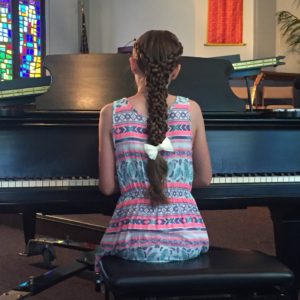
A piano lesson is typically 30-minutes once a week. That means most learning must be done outside of the scheduled lesson time. Practice is an essential part of the process, and we are always willing to provide advice for how to help make that happen in your home.

